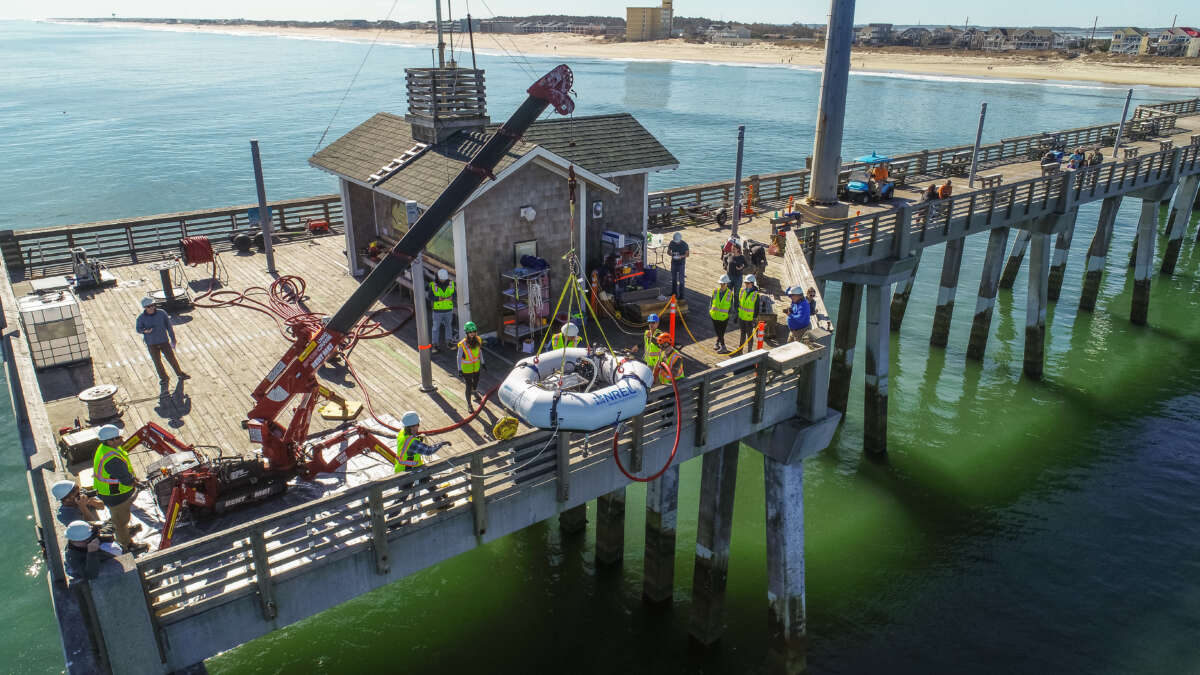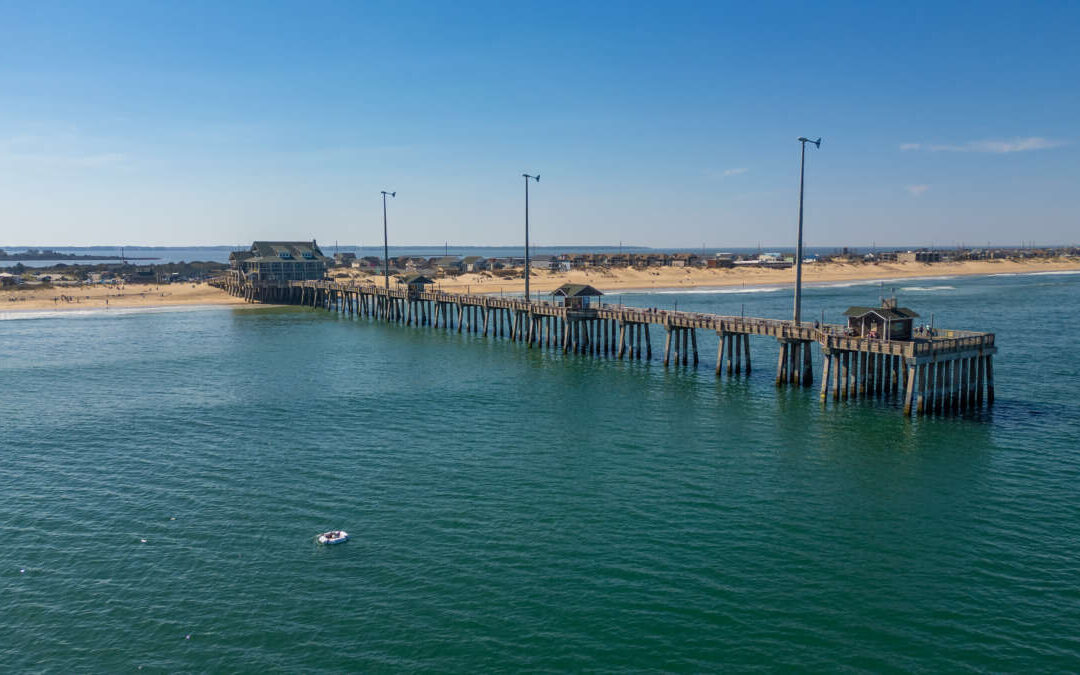Remote and island communities, like the Outer Banks, do not always have access to resilient energy sources during severe weather or other coastal hazards that jeopardize traditional grid power. When disaster strikes, it may be quite some time before such communities have renewed access to clean drinking water or electricity, and this lag time can hamper recovery efforts. However, thanks to a new ~$3.6 million National Science Foundation (NSF) grant awarded over five years to researchers from the University of Michigan, East Carolina University, UNC- Chapel Hill, and Virginia Tech, increased levels of energy resilience could be just around the corner for the coastal communities in North Carolina, Michigan, and Alaska. The Town of Nags Head has been chosen as a focal community in North Carolina.
The new project launched on September 27 and could last up to five years. The main objective is to provide a comprehensive, transdisciplinary approach to the development and deployment of marine renewable energy technologies that could be tailored to individual communities.
The first two years of the five-year project will be spent getting to know the stakeholders of the identified communities, assessing their specific energy-related needs, and identifying potential wave energy technologies that could meet those needs. During the remaining years of the project, the focus will shift to technology design evaluations, wave tank testing, and testing deployment of devices in coastal waters. Technology that uses waves as a renewable energy source will be a focal point of community discussions and suggested solutions. Technical leads will consider the needs of each community as they create and then test marine renewable energy devices that are specifically suited for each of the three study areas.

The Coastal Studies Institute has engaged in renewable ocean energy research for nearly a decade and a half.
Among those to receive funding are Drs. Eric Wade (ECU & CSI) and Lindsay Dubbs (UNC-CH & CSI), both of whom are based at the Coastal Studies Institute. Dubbs’ previous and ongoing work to collect environmental assessment data off the Outer Banks coast will be leveraged during the technology development phase of the project, especially here in North Carolina. Her work, largely funded by the North Carolina Renewable Ocean Energy Program led by CSI, has been focused on the potential impacts of marine energy development on nearshore and offshore ecosystems.
Meanwhile, Wade will lead community engagement efforts including workshops, interviews, and surveys to better understand the needs of each unique community, as well as community members’ perceptions of marine renewable energy devices. One desired result of their research, in combination with the research of others leading the study, is to create a set of socio-environmental metrics to guide the identification of marine energy technologies that account for community needs and environmental dynamics.
“This project can be transformative for powering remote coastal communities by leveraging wave energy technologies. Indeed, this project centers communities as a key partner by understanding their needs and designing technologies that best meet them. Through this community-centered approach, we hope to contribute to the need for energy equality and sustainability for coastal remote communities. Further, this project leverages ECU and CSI’s ongoing partnership with coastal communities, seeing them not only as research recipients but as active participants throughout the project.”
In addition to building upon pre-established relationships with local communities in North Carolina, this project will also complement ongoing research conducted by the NC Renewable Ocean Energy Program (NCROEP), led by CSI, and the Atlantic Marine Energy Center (AMEC), of which CSI is a founding member. Once the project has reached the deployment phase, the device built based on the identified needs of Nags Head will be tested at the Jennette’s Pier Wave Energy Test Center, managed by NCROEP and Jennette’s Pier.



 Based at the Coastal Studies Institute (CSI), the North Carolina Renewable Ocean Energy Program (NCROEP) advances inter-disciplinary marine energy solutions across UNC System partner colleges of engineering at NC State University, UNC Charlotte, and NC A&T University. Click on the links below for more information.
Based at the Coastal Studies Institute (CSI), the North Carolina Renewable Ocean Energy Program (NCROEP) advances inter-disciplinary marine energy solutions across UNC System partner colleges of engineering at NC State University, UNC Charlotte, and NC A&T University. Click on the links below for more information. ECU's Integrated Coastal Programs (ECU ICP) is a leader in coastal and marine research, education, and engagement. ECU ICP includes the Coastal Studies Institute, ECU's Department of Coastal Studies, and ECU Diving and Water Safety.
ECU's Integrated Coastal Programs (ECU ICP) is a leader in coastal and marine research, education, and engagement. ECU ICP includes the Coastal Studies Institute, ECU's Department of Coastal Studies, and ECU Diving and Water Safety. The ECU Outer Banks campus is home to the Coastal Studies Institute.
The ECU Outer Banks campus is home to the Coastal Studies Institute.

